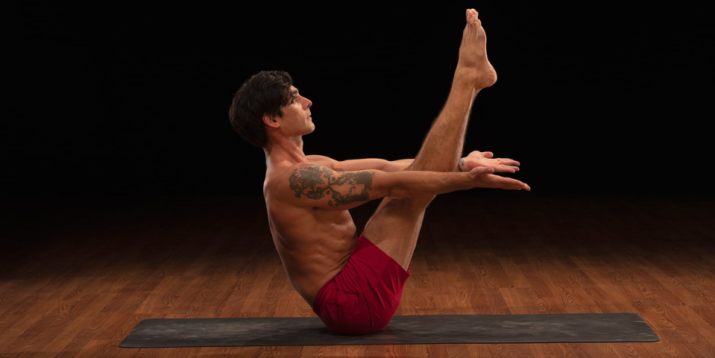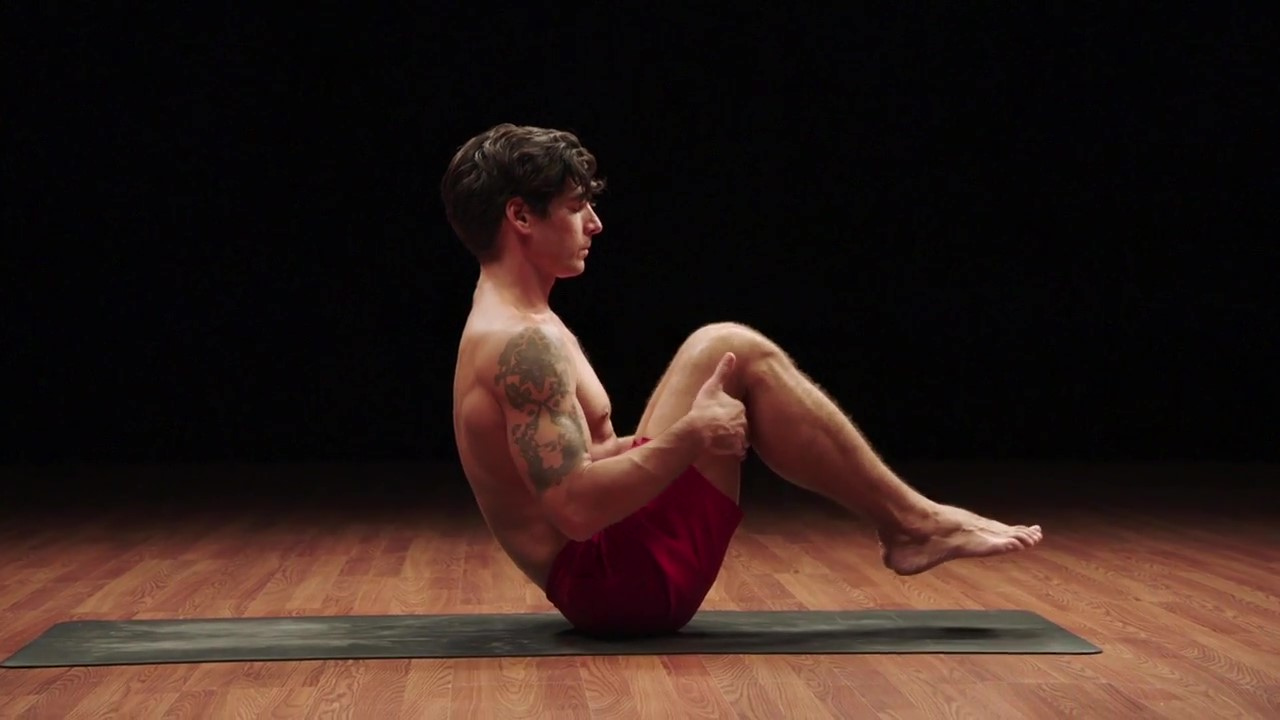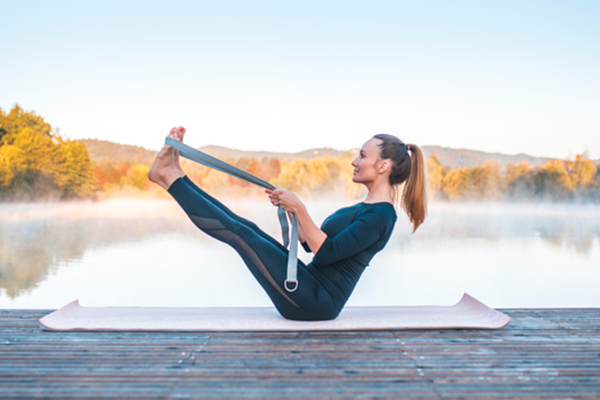How to Do Boat Pose in Yoga (Navasana)

It’s no wonder many yogis have a love-hate relationship with boat pose. Known also as navasana, this yoga pose requires you to hold your balance, keep your core engaged, and avoid straining your neck — all while keeping your breath steady and strong.
Among other benefits (see below), navasana is one of the best-known yoga poses for abs. Just a few breaths in this V-shaped posture are sure to have your belly feeling the burn. And learning how to do it correctly can not only build core strength, but also focus and concentration. (It’s not easy!)
Boat Pose (Navasana): Step-by-Step Instructions
Boat pose is also sometimes called paripurna navasana. (Paripurna = full or complete; nava = boat; asana = seat or pose). Here’s how to do it correctly.
- Sit on a yoga mat, with your feet flat on the floor, hip-width apart.
- Keeping your spine straight (don’t let it round!) and your abs engaged, find your balance by leaning back between your sitting bones and tailbone.
- Lift your feet so your shins are parallel with your mat. Then, if possible, straighten your knees so your legs form a 45-degree angle with the floor.
- Extend your arms in front of you, with your palms facing in and your shoulders away from your ears.
- Hold the pose for five breaths or up to one minute.
How to Make Boat Pose Easier

- Keep your knees bent. Bending your knees brings you to half boat pose, or ardha navasana. If that still feels too intense, keep the balls of your feet lightly touching the mat with your heels lifted.
- Hold the backs of your thighs. If you struggle to keep your back straight or feel strain in your low back, grab your hamstrings or place your hands behind you on the mat for additional support.
- Use a strap. To reduce the load on your abs and hip flexors and to help you find your balance and strength in boat pose, loop a yoga strap around the balls of your feet.
How to Make Boat Pose Harder
If you want to intensify boat pose, start by holding it for more breaths. You can then progress to these other ways to amp up your navasana.
- Twisting boat. While in boat pose, twist to your right as you inhale, extending your right arm behind you without moving your lower body. Return to center after an exhale, and repeat on the other side for five to 10 reps.
- Boat in the storm. Place a yoga block between your knees and, while in boat pose, draw your knees to the right until your left glute lifts off the mat. Balance on your right glute, holding for a full breath. Return to center on an inhale, then repeat on the other side, for five to 10 full repetitions.
- Boat crunches. From full boat pose, exhale and lower your legs and upper body until they hover just above your mat. (This is sometimes called “canoe” pose.) Inhale to return to boat pose and repeat as desired.
Additional Tips for Doing Boat Pose
Consider these helpful tips to get stronger and more confident in navasana.
- Keep your shoulders down and engaged. When you get tired in boat pose, you may find your delts are up around your ears. Relax your shoulder muscles and lengthen your neck, casting your gaze past the tip of your nose.
- Focus on your balance. Boat pose can be a challenge for your balance, so start by rolling up and back on your spine with your knees bent. “You’ll find the place where you’re no longer fighting gravity and are not placing all of the pressure on your sacrum,” says Stephanie Saunders, BODi vice president of fitness programming.
- Sit on a blanket. If you ain’t packin’ much back, boat pose may feel uncomfortable. So pad your rear with a blanket folded to the desired thickness.
Benefits of Boat Pose

There’s no doubt about it: Boat pose will work your core. But there’s much more to the pose than that. Here are some reasons why boat pose is a staple in any yoga practice.
1. Strengthens hip flexors
While navasana is among the best yoga poses for abs, it’s also good for your hip flexors, too. Keeping your legs lifted strengthens the psoas and iliacus muscles, two primary hip flexors.
“The abdominals are responsible for keeping your torso lifted, but it’s flexion in the hip that is responsible for the movement,” says Saunders.
2. Strengthens quadriceps
Engaging your quads in boat pose helps make them stronger and more toned.
3. Strengthens shoulders
Keeping your arms extended will work your deltoids, particularly the anterior head of the muscle.
4. Strengthens abdominals
Of course, navasana strengthens the rectus abdominis, along with the deeper muscles of the abdomen and obliques that frame it.
